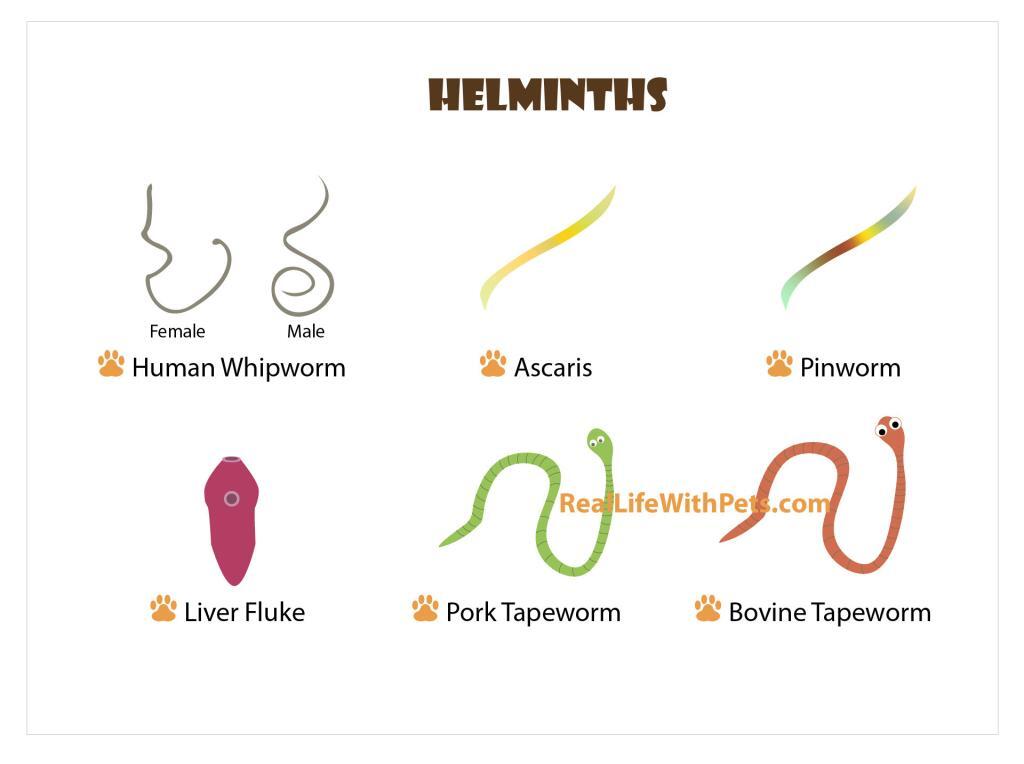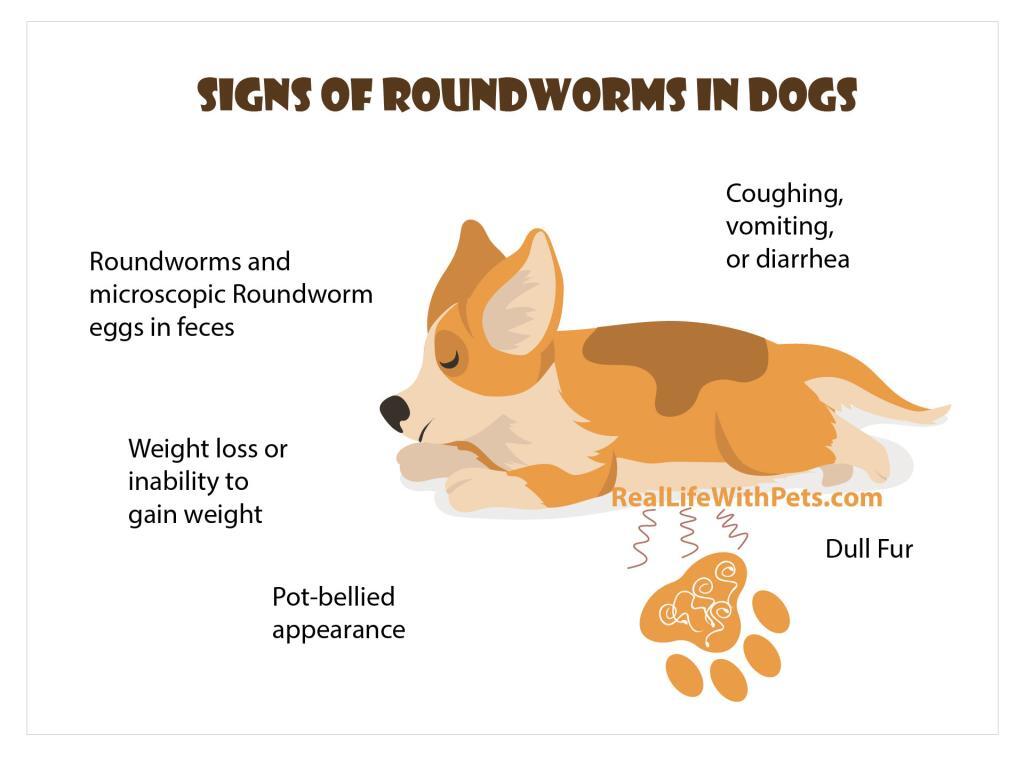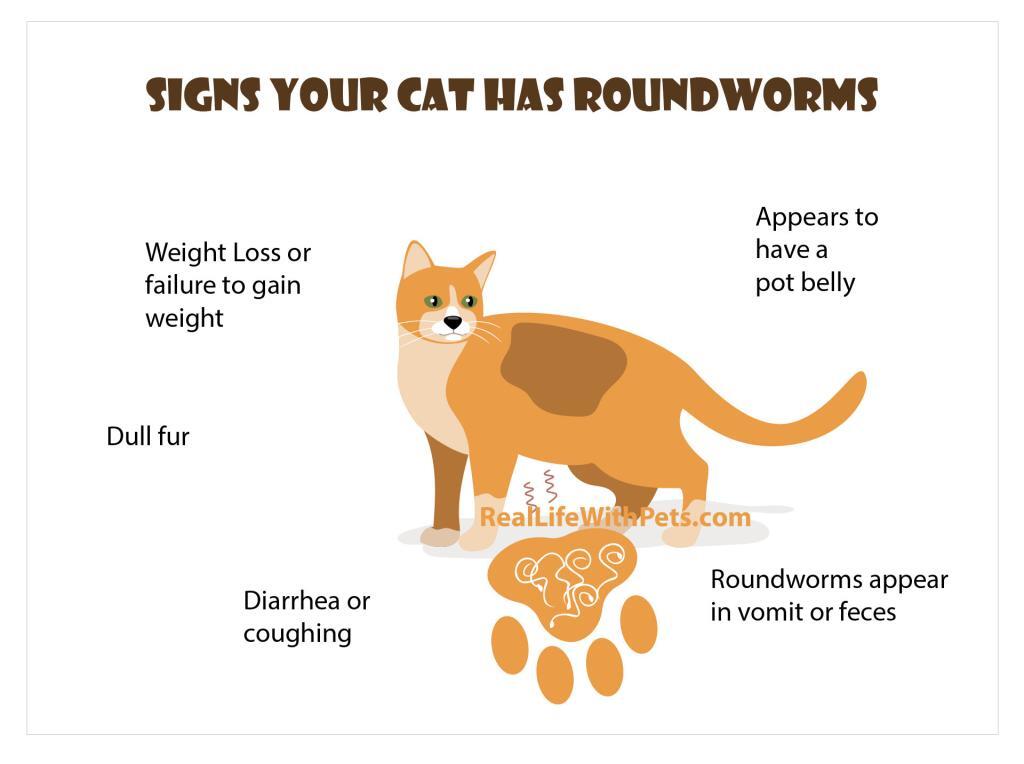Table of Contents
Worms (helminths) are quite common in cats, and in animals in general. Many owners of cute pets think that worms are the prerogative of street dogs and cats only; however, home pets can also be infected with these parasites. But where do they come from and what are they?
Worms are parasites that inhabit humans and animals. They can multiply and feed in the bodies of humans and animals. They can live not only in the intestines and stomach but also in other organs: lungs, heart, etc. The owners of purebred domestic cats and dogs are often surprised when worms are found in their beloved pets even if all hygienic requirements are being observed.

The thing is, there are many ways for your pet to catch helminths. For instance, every time you give them raw meat, fish, or even milk, the products may contain invisible larvae. The owners can become a carrier of the disease as well by bringing worm eggs home on the clothes or on the soles of their shoes. Your pet may also catch worms when playing with neighboring animals or eating from another’s dog bowl. It is important to realize for every owner how worms are dangerous and how to treat the problem properly.
Why Are Worms So Dangerous?
Since our pets are not used to living in the wild, where worms are a common thing, these parasites can harm, or in some severe cases even kill domestic animals. Here are the common problems caused by worms:
- vomiting and diarrhea;
- lack of receiving proteins, fats, carbohydrates, vitamins, and microelements;
- the helminths’ vital activity produces toxins, which are extremely dangerous for the animal;
- helminths may be a cause of appearing the pathogenic microbes in the body that activate the microflora of animals, reducing the body’s resistance which leads to infectious diseases;
- the most important is that humans can also get worms.
How To Prevent a Pet From Getting Worms?
To protect your pet from worms you must follow simple requirements:
- Regular deworming procedures. Even if there are no obvious reasons for worm infestation, it is necessary to do deworming with special dewormers, the special drugs to treat and prevent the parasites. It is always recommended to use dewormers according to a certain scheme. It helps your pet avoid the negative consequences.
- Pet diet. Feed your pet with quality ready-to-eat foods from trusted manufacturers. If the diet includes natural products, it is necessary to do heat treatment: boil or steam meat or fish for several minutes. Give the pet only boiled or bottled water.
- Regular cleaning. Every day helminths lay a huge number of eggs, which quickly spread throughout the place you live in. Therefore, after using a pet dewormer it is necessary to clean the entire house with detergents and pay special attention to the pet’s belongings.
- No contact with street animals. Interacting with street cats or dogs is a direct threat of internal and external parasite infestation for your pet.
What Kinds of Worms Do Pets Get?
There are many parasitic worms that pets can get. Some of them are yet to be studied properly. Moreover, these parasites have evolved and have become more resistant to negative external impacts. Pets warms are conventionally divided into six classes.
- Roundworms. Pets become infected with roundworms most often. Most of these parasites live in the intestines of animals. One helminth can lay about 200 thousand eggs. Infection with various types of roundworms occurs either by swallowing the eggs of parasites or due to the bites of blood-sucking insects. These worms can be very dangerous to animals and cause diseases of varying severity, from diarrhea to cancer. That is why it’s important to use the right medicine to treat and prevent worms from infecting your pet.
- Whipworms cause significant damage to the animal’s health. They need to be diagnosed by a veterinarian and treated with deworming medicines. It is quite difficult to detect whipworms in the pet’s body, even with several stool samples. In cases of low-grade infection, whipworms do not cause much harm. In more severe cases, the following symptoms of whipworms may appear, such as gastrointestinal disorders, diarrhea, weight loss, nervousness, and even fainting.
- Hookworms are a type of roundworms that cause helminthic pathology. Usually, hookworms parasitize on the walls of the small intestine. However, some of the larvae can go into circulation. As a result, they affect many organs. Puppies and kittens are especially susceptible to these parasites.
- Tapeworms mostly infect dogs. These parasites can live in the intestines for a long time before you notice any health problems in your pet. That’s why you need to identify whether your animal has worm segments in feces, rectal itching, vomiting, or weight loss. Many types of tapeworms are transmitted by the bites of infected fleas. You should always remember that prevention is better than cure. The best way to protect your dog from worms is to do the flea prevention procedures regularly In case your pet has already been infected, use the best dog dewormer.
- Lungworms live, as you might have guessed, in the respiratory tract. Your pet can get infected with these parasites only through contact with other animals, such as small rodents or birds. This is a common thing for cats that go outside for some time. However, dogs may also have this type of worm. The main symptoms of lungworms are frequent coughing and wheezing. Treatment of such parasites should be under the direct supervision of a veterinarian. Therefore we strongly recommend you not to use homemade dewormers or medications that have not been prescribed by a specialist.
- Heartworms are found in both, dogs and cats. The disease is hidden for a long time. It usually takes a year and even more, before pets have clinical signs of infestation. These worms block large blood vessels connected to the heart. They also interfere with the normal functioning of the heart valves and disrupt the normal functioning of the heart’s valves.
What Are the Basic Symptoms of Worms in Pet?
The symptoms of worms in pets rarely occur right after the infestation, since the life cycle of a parasite takes some time before an egg can grow up to be an adult helminth. Moreover, depending on the type of worm, the symptoms will differ as well. Nonetheless, here are the main signs that your pet may be infected with some kind of worm or worms.
Symptoms of Worms in Dogs
Sometimes the disease can be detected according to the dog’s appearance, lack of interest in activities, or retarded physical development of the growing puppy. Weight loss despite the animal’s good appetite may also be a sign of worms. When it comes to tapeworms, rectal itching may be a symptom of helminths. Pay attention also to the dog’s fur and skin, as it can worsen during infection with certain types of worms.

Symptoms of Worms in Cats
The symptoms of worms in cats are pretty much the same. The only difference is in the time when the first symptoms take place and the course of the disease. Due to the difference in organisms of the animals, certain types of worms can be more or less dangerous for cats than for dogs.

Liquid, Powder, or Tablet
It is important to note that different types of drugs fight different types of worms in pets. That is why, when the first sign of any of the symptoms mentioned above appears, contact the veterinarian for help.
Worm medications usually come in three forms, including liquid, powder, or tablets.
- Liquid Dewormers. If your pet doesn’t take oral medications, a liquid dewormer is the best option. Moreover, the liquid dewormer is quickly absorbed.
- Powder dewormers will be the easiest way for owners to make their pets eat it by simply mixing it up with the food in a bowl. Read the instructions of a powder medication carefully to find out the right dosage before giving it to your pet.
- Tablets are known to be the most effective type of pet dewormers. Usually, to get rid of worms the pet needs to take only one dose of tablets. If, however, your dog refuses to take the tablet, you should mix it with the food.
How to Choose the Right Dewormer
Choosing the best dewormer may be a difficult task, because there are multiple things to be considered beforehand:
- Keep your dog’s environment clean. It is very important to follow the hygiene requirements, not only during treatment but also to prevent the worms in the future. Keep your pet’s litter box clean and change it regularly. Besides, clean the house regularly and wash your pet 1-2 times a month (for dogs) and 5-6 times a year (for cats).
- Consult your veterinarian. Treating at home can be dangerous for your pet. Before giving any deworming medicine, visit a veterinarian first and take a special test to identify the type of worms your pet is infected with.
- Choose dewormers for all types of worms. Dewormer for all worms is a good way of treating the majority of worm types. Such drugs will be effective against roundworms, whipworms, tapeworms, and even hookworms. For the treatment of heartworms or lungworms, your pet will need medications that are prescribed directly by the veterinarian after diagnosis.
Best Dewormers for Pets
If you want to buy effective pet dewormers over the counter, here are some of the best options.
|
Dewormer |
Description |
|
Bayer Tapeworm Dewormer |
One of the best over-the-counter medications for cats to get rid of tapeworms quickly and effectively. Comes in tablet and capsule form and can be given to a pet with food. |
|
Omega-Alpha Para-Free |
Many dewormers may be quite toxic for your pet, but Omega-Alpha Para-Free is a natural dewormer that can be used for both cats and dogs. It can also be used to prevent parasites from multiplying. |
|
HomeoPet WRM Clear |
Another natural option that helps the pet’s body fight worms by improving its immune system rather than killing parasites and can be given with any food. |
How to Get Rid of Worms in Pets at Home?
There are some home remedies that may help you to fight parasites in your pet.
- Pumpkin Seeds. They are proven to be very effective worm medicine because of an amino acid (cucurbitacin). It paralyzes the helminths and makes them easily eliminated from the body. You can give them whole or chopped into a powder and add to food twice a day. The dose is one teaspoon per 10lbs of body weight.
- Carrots. Vitamin A contained in carrots can help to get rid of worms. This vegetable is also a source of nutrients for the animal. You may give carrots with any other meal.
- Dried coconut. It is known as a vermifuge. Mix one teaspoon with food if your dog is small, and 2 teaspoons for medium and large pets. You may also use coconut oil, it also helps your pet to get rid of worms. Besides it has lots of other health benefits
- Apple Cider Vinegar. It increases the alkaline levels in the dog’s intestines making it inhospitable for parasites and worms. Mix the dog’s water with 1/4-1 teaspoon of raw. Do it every day to notice the positive results.
- Turmeric. It helps to get rid of different types of worms. It also boosts the immune system and is known for its antibacterial, anti-inflammatory, and anti-fungal properties. For better absorption give turmeric with coconut oil.
- Chamomile. It helps to treat inflammation caused by internal helminths (whipworms and roundworms). Give 0,25 ml – 0.50 ml of tincture per 20 lbs of the pet’s weight twice a day during 2 weeks.
Remember that treating at home and preventing worms the natural way is a good start. But never forget to visit the vet regularly. Only your vet may identify what kind of worm the pet has and to prescribe proper treatment.
FAQ
What Happens If You Give a High Dose of Worm Medicine?
Depending on how much you have given, it may negatively affect the dog’s health. The most likely side effects will be diarrhea and vomit.
How Does a Pet Dewormer Work?
The majority of dog and cat dewormers kill the parasites or break them into small parts so they can be removed from the body naturally.
How Can a Pet Catch Parasitic Worms?
The most common ways for a pet to catch worms are through food, contact with other animals, bites of fleas and blood-sucking insects, and even from human clothes and shoes.
How Long Does It Take To Get Rid of Worms?
Depending on the deworming medicine, the majority of worm types will be killed within hours after taking the medicine.
Can I Catch Worms from My Pet?
Yes, humans can also catch worms from their pets.
Does over-the-counter-dewormer work for dogs?
The over-the-counter dewormers bought from pet supply retailers usually help to get rid of roundworms. This type of worms can be found in most pets. But please pay attention that over-the-counter-dewormer aren’t effective on the other types of helminths that older pets can have. To treat worms in your older cats and dogs you need to take the pet to the veterinarian.
Can I give my dog worms medicine without going to the vet?
Our suggestion is to contact a veterinarian for help and diagnosing not only if you are sure that the pet has worms. There are some kinds of worms that may live in the pet without showing any sign of their existence. That’s why it is very important to show your pet to the vet to check if your dog or cat has intestinal worms and also exactly what kind of helminths they are. Without such knowledge, it will be difficult to choose the correct medication for the pet.
Do dogs poop out worms after dewormer?
Sometimes you may notice worms in the pet’s stool in the days after a deworming treatment. But some types of intestinal worms (hookworms, whipworms) are so small that you will never see them in the dog’s stool.
Also, be prepared to see live worms in feces. Do not worry, this is normal. We understand, that it can be unpleasant, but it is actually a good sign. It shows that worms are no longer inside the pet. You may see dead worms as well, or your four-paws friend may suffer from diarrhea. This is also a result of treatment.
How often should dogs be dewormed?
If we talk about puppies, give them a dewormer every 2 weeks until they reach 12 weeks of age, once a month until 6 months of age, and every 3 months after 6 months of age.
What happens if worms are left untreated in dogs?
Parasites can damage your pet’s organs which may lead to loss of consciousness and even death. If you think your pet has helminths, visit the veterinarian. Most worms are easy to treat by medicine your vet will prescribe.























